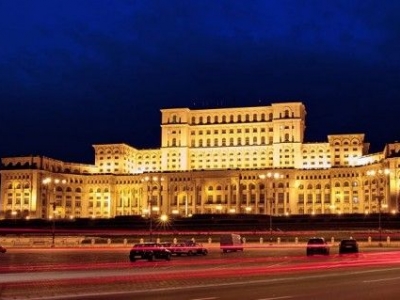
Fidusuisse
no reviews yet
Specialises in:
- Incorporation Services
- Shelf Companies
- Trusts
- Foundations
- Virtual Office
- Bank introductions
Romania PLC
€4800 EUR
Incorporation time: 1-10 days
Nominee Director Included Nominee Shareholder Included Secretary Included Nominee Director Included Nominee Shareholder Included Secretary Included
FORMING A ROMANIAN COMPANY
Incorporation time: 10 days
Shelf companies: Yes
Accounting: Yes
Secretary: Yes
Nominee Shareholder: Yes
Nominee director: Yes
History of Romania
Romania is a Central European country which joined the European Union in 2007. The country has been historically influenced by a number of countries. Romania’s democracy was overturned by fascism and was then subject to the Soviet regime in the mid-20th century, finally gaining independence after its 1989 revolution. Now a NATO member, Romania has ties with China and the developing world.
Romania as an Onshore Centre
Romania has been increasingly able to attract foreign investment thanks to its strong economy (which is one of the best in Eastern Europe) its European Union membership, and its favourable legislation. It is therefore a good onshore location for establishing a business.
In Romania, it is possible to register a private company (the most common structure), a joint stock company, a general partnership, a limited partnership, and a branch or a representative office of an overseas company. Forming a company in Romania makes it possible to take advantage of low tax rates, a good location (at the heart of Europe), and optimise margins via an import/export setup.
Types of Romanian Companies
Forming a company in Romania takes around ten days and involves six steps.
| Entity | Capital | Number of Partners, Shareholders or Members |
|---|---|---|
| Private company | 200 RON minimum | At least one shareholder, maximum of 50 shareholders. Limited Liability. |
| Public company | 90,000 RON minimum | At least two shareholders, limited liability. |
| General partnership | Not Applicable | Minimum of two partners, unlimited liability for debts and obligations, liability is joint and several. |
| Limited partnership | Not Applicable | At least two partners, one general partner must assume unlimited liability but all limited partners enjoy limited liability. |
Detailed Review of Romania’s Economy
Undertaking mass privatizations of Government holdings in the early 1990s Romania transformed itself into a market economy following its independence from the USSR. Having opted for a liberal economy, which was the systematic trend among former Soviet bloc nations, Romania has experienced sustained growth. Romania was significantly affected by the 2008 crisis. The country has always been one of the poorest in the EU, and its growth estimate for 2014 is 2.5%.
Romanian agriculture still employs a significant share of the country’s active population (28%) and produces mainly potatoes, beets and grains. The forestry sector is a growth area due to Romania’s extensive forests.
Industry, which accounts for 37% of Romania’s GDP, attracts a lot of Foreign Direct Investment in the metallurgy and steel industries, and manufacturing is also an important sector. Recently, high-tech industry has also developed due to improved employee qualifications. The services sector represents half of the country’s GDP, and tourism is increasing its market share of this sector.
With more imports than exports, Romania is dependent on the external market. It primarily imports electrical and mechanical equipment. Romania’s main trade partner is the EU.
Romania’s Economic Strengths
- Increasingly qualified yet affordable workforce.
- EU member state, adoption of the Euro is scheduled for 2016/17.
- Vast internal market.
Romania Economic Weaknesses
- High level of corruption.
- Extreme poverty of the population.
- Poorly maintained infrastructure.
The Government of Romania has implemented measures in order to encourage investment, particularly in the energy sector which the government is seeking to privatise.
Trade and Market Information
Romania has been a member of the European Union since 2007, and has signed the Montreal Protocol for the Protection of the Ozone Layer. Pharmaceutical, chemical and health products imported into Romania are subject to licensing and must comply with applicable standards.
Importing products into the European Union requires an Entry Summary Declaration, which makes it possible to further secure trade exchanges. Imports from European Union member states are not taxed, unlike imports from countries outside of the community. For non-member countries, customs duties can reach 30%.
Distribution in Romania is dominated by discount retailers and supermarkets including groups such as Aro, Metro Quality, Carrefour and Cora. Goods are transported by various methods in Romania: by road (almost half of which are paved), by rail, and by water via the Danube which is Europe’s longest river.
Finally, Romanian industry is dominated by electrical equipment, textiles, the automotive industry, metallurgy, construction materials, and oil refining.
Employment Legislation in Romania
The legal working week in Romania is 40 hours, with a maximum of 8 hours per day. Minimum wage is around 200EUR per month, and retirement age is set at 57 years for women and 62 years for men.
The Romanian Labour Code is very strict and employment contracts are similar to those in Western Europe. Almost 40% of employees are union members, and unions are strong in the professional world.